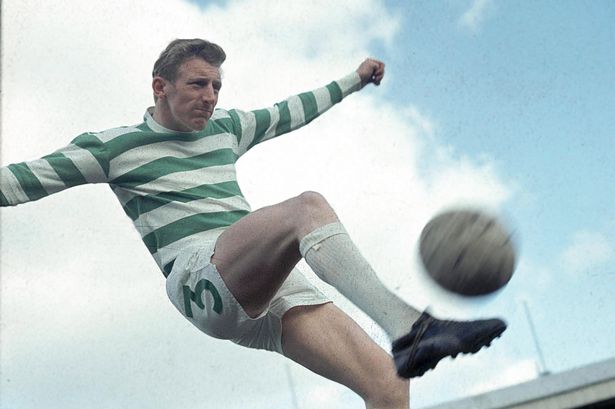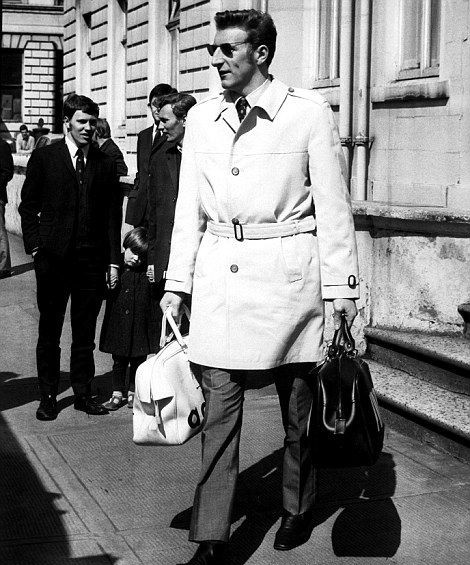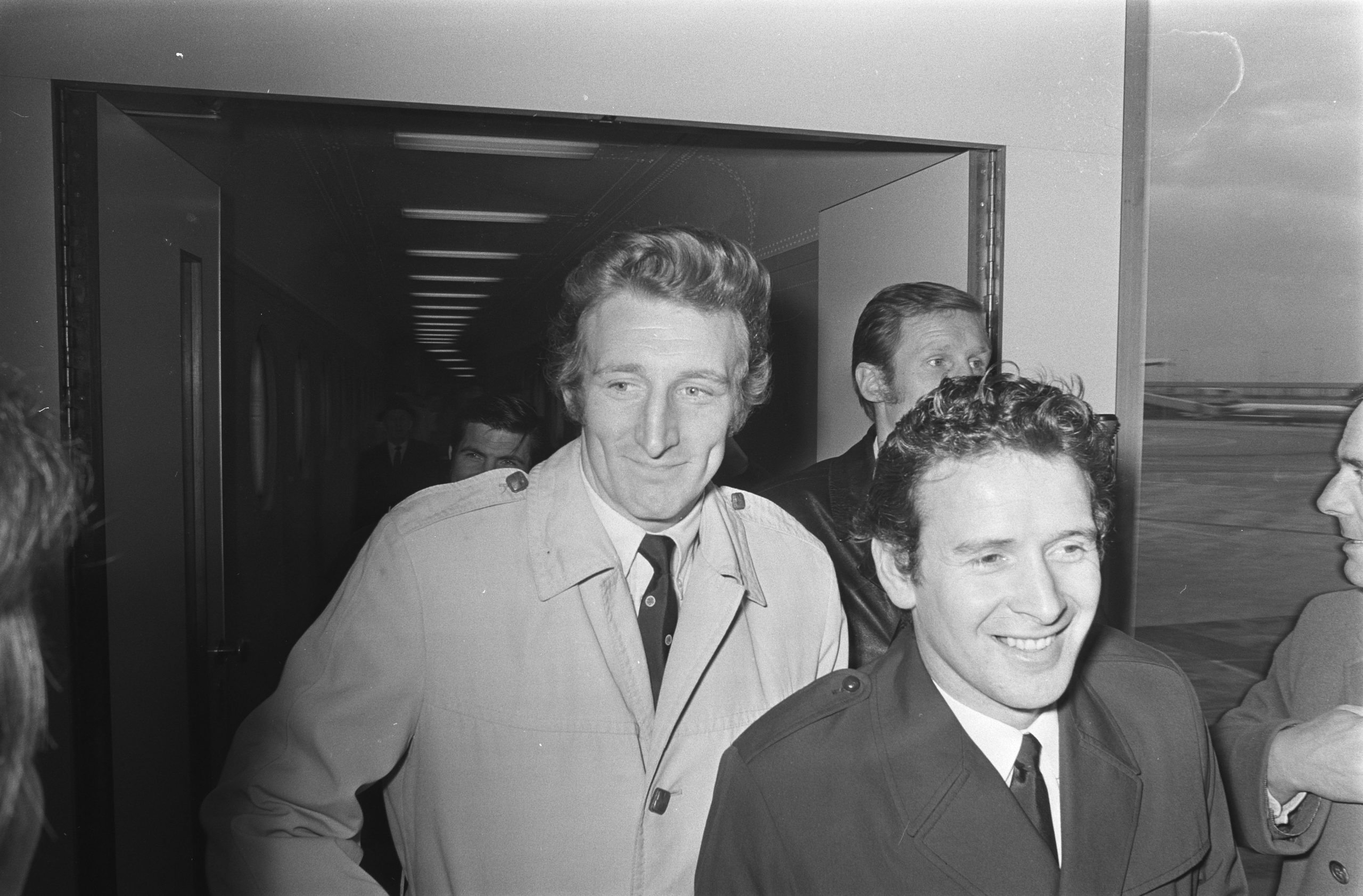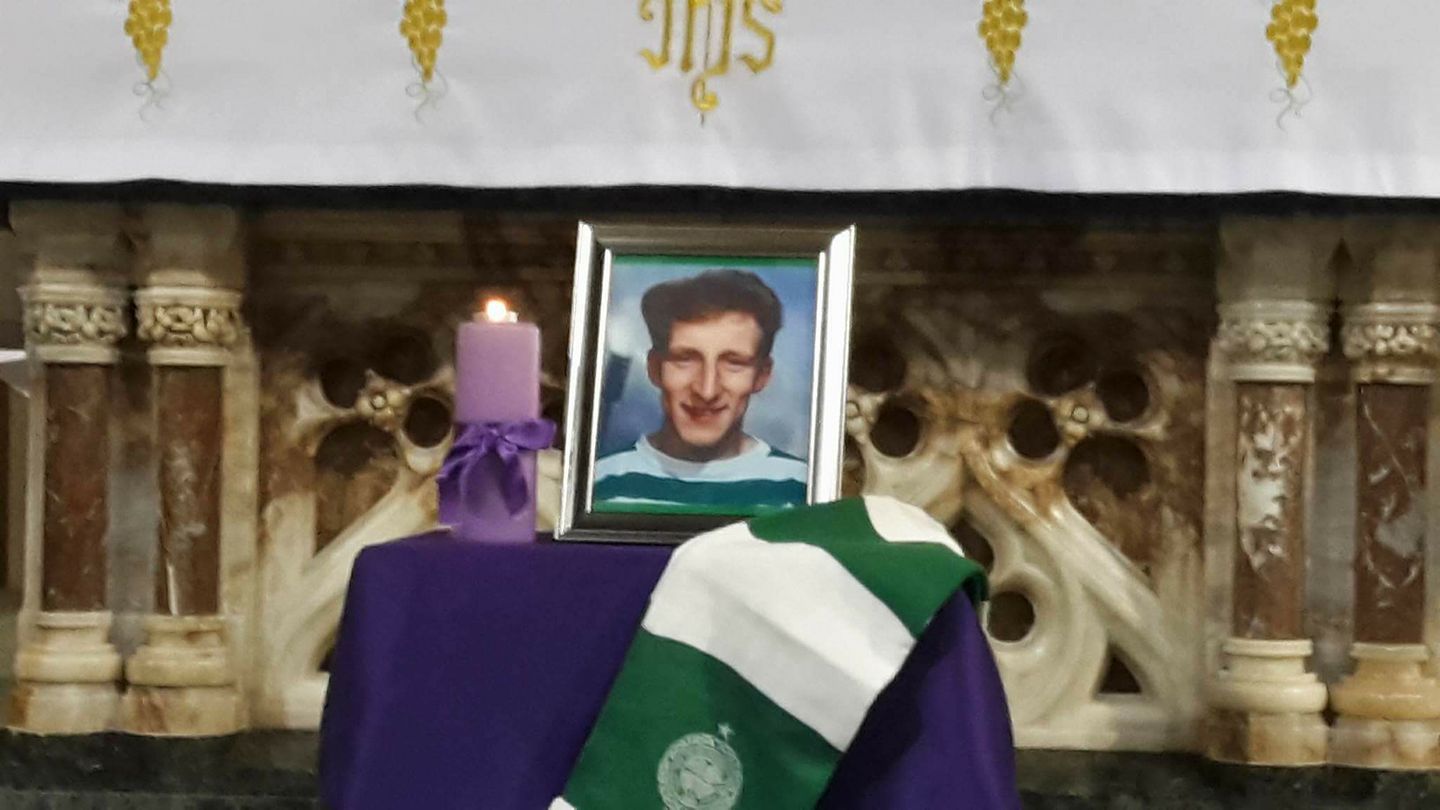16 October 1943
Motherwell, Scotland
2 March 2017
(aged 73)
Tommy Gemmell was born on October 16, 1943, in his grandmother’s house on Cumbrae Road in Motherwell; the family then relocated to Craigneuk in Wishaw when Tommy was five years old. He started on the right wing for his high school team and only shifted to left back when his amateur team, Meadow Thistle, needed a full back. He joined Celtic from junior team Coltness United in 1961, having previously trained with the club twice a week. On the same night as Jimmy Johnstone, he signed provisional papers.
Being up in difficult circumstances, he was a keen Motherwell supporter in his youth. The environment is most likely what shaped his game’s rough edged attitude. He lacked nothing and took no prisoners as an aggressive attacking full back. He radiated confidence, allowing the Lisbon Lions to launch attacks from the back as well as the front. He was well renowned for his powerful shot (which he dubbed the “dunk”), which made him the ideal penalty kick taker.
Tommy’s brother David says: “He did play for Wishaw High School team in the outside right position. On leaving school he played with the local amateur team Meadow Thistle. Thereafter he caught the eye of local councillor and later Provost Edward McArdle J.P. who was a scout for Celtic and the rest is history.”


The arrival of Jock Stein at Celtic was a major turning point in his life, and things would never be the same again. He had been going nowhere in particular before to this. Jock Stein pushed Tommy Gemmell, who rapidly became recognised not only for his strong defence but also for his dashes forward and thunderbolt goals. Gemmell was recognised for his long-range attempts towards goal even before the European Cup final. He became the first Celtic player to score in the European Cup on September 28th, 1966, when he scored against FC Zurich at Parkhead. The fact that he was an ever-present that great season is astonishing, with only John Clark in a comparable position.
He will be remembered for one distinctive moment in Lisbon, when he scored the goal that helped Celtic win the European Cup in 1967. The odd thing is that he was not a prolific goal scorer, with many of his goals coming from the penalty spot (64 goals in 418 appearances for Celtic, 31 of those from the penalty spot). A bold, no-nonsense player, he was the best at taking penalties, and his ego undoubtedly gave him the overconfidence to do so. He only missed three out of 34 shots. He also scored in the 1970 European Cup final, making him one of only a few footballers to have done it.
Tommy made his Scotland debut in April 1966, when Scotland lost 4-3 to England at Hampden. He earned 18 international caps (scoring once) but is arguably most known for his sending off (his first of his career) in a critical qualification match against West Germany in October 1969, which the Scots lost 3-2, in which he chased an opposition player to give him a boot up the behind. The event was then mocked and replicated in a football spoof on the BBC’s “Fantasy Football League” TV show in the 1990s, in which Gemmell kicked comedian Frank Skinner so hard that he hurt himself in the fall.
He was one of the most genuine, candid Lisbon Lions players, which fans liked about him. Tommy Gemmell is only surpassed in the high jinx stakes by Jimmy Johnstone. In fact, Tommy Gemmell appears to be involved in or present in almost all of Jimmy Johnstone’s stories. Both were good friends who joined Celtic at the same time and worked together.
Tommy Gemmell played two years at Nottingham Forest after leaving Celtic in December 1971. He played alongside future Celtic manager Martin O’Neill and future Celtic coach John Robertson. He subsequently spent three years in Dundee from 1973 to 1976, captaining the Dens Park team to a 1-0 triumph over Celtic in the League Cup final in December 1973. This enraged some parts of the Celtic crowd, who retaliated vocally, while the others respected his feat.
After retiring from playing in December 1976, Gemmell went into coaching. He managed several Scottish clubs, including Dundee from 1977–1980, Albion Rovers from 1986–1987, and again later between 1993–1994.
He was a regular Celtic speaker at interviews and dinners. In addition, he was named to the club’s Greatest Ever squad by the fans in 2002. He will be remembered for both his on-field accomplishments and his off-field antics.
Gemmell sold his Celtic medal collection at auction for £32,000 in 1994. They were acquired by Glasgow businessman Willie Haughey, who has strong relations with the club, and leased them back to Celtic to be displayed. In 2006, he was inducted into the Scottish Football Hall of Fame.

Sadly, Gemmell passed away on March 2, 2017, at the age of 73. He left behind a legacy as one of the greatest players in the history of Scottish football. His contribution to Celtic’s historic European Cup triumph in 1967 will never be forgotten, and he will always be remembered as a true legend of the game.
Tommy’s funeral was held on 10th March 2017 at Daldowie Crematorium. Prior to that, the funeral cortege departed Celtic Park and proceeded along the Celtic Way to make one more visit to Celtic Park before continuing on to London Road and Daldowie Crematorium, joined by former teammates, serving Celtic manager Brendan Rodgers, and Rangers managing director Stewart Robertson.
Upon reflection, one of the greatest compliments Tommy Gemmell can receive is that he helped reinvent the game by demonstrating the future of the full-back position.
